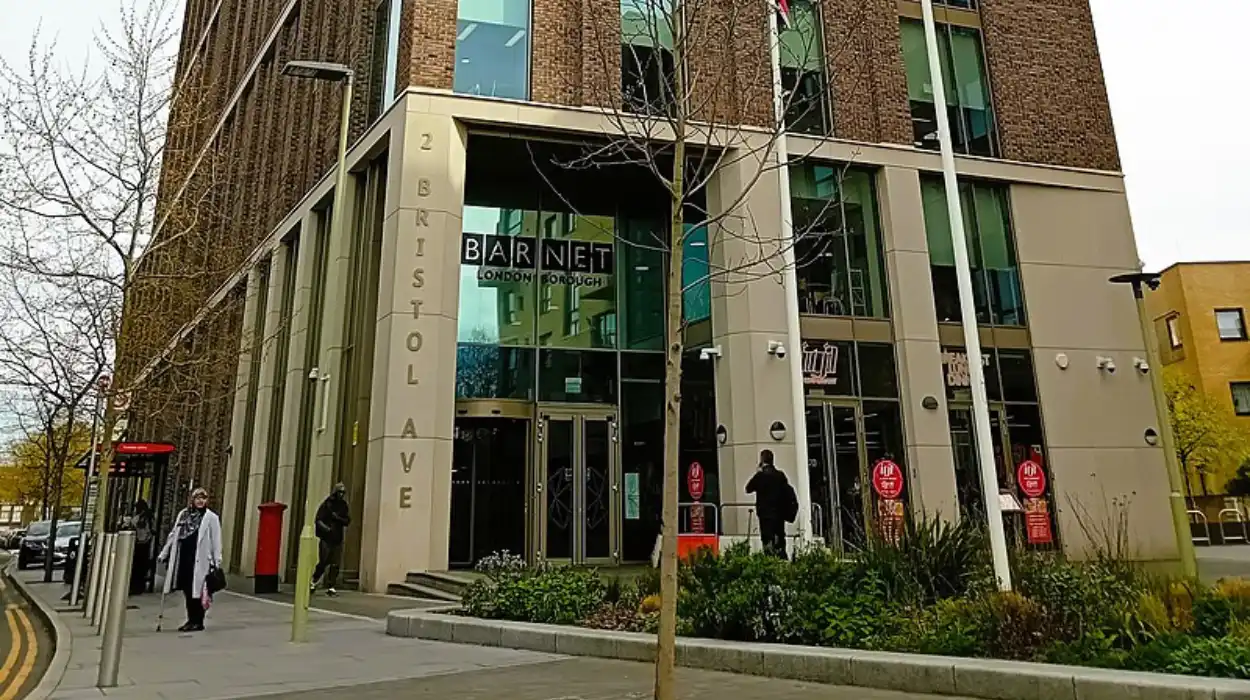Barnet (Parliament Politics Magazine) – New figures reveal Barnet Council’s spending on temporary accommodation for homeless residents rose sharply last year amid growing housing pressures.
Charity for the homeless Private companies are “cashing in” on the housing crisis by demanding “eye-watering sums” for rooms, Shelter said.
According to data from the Ministry of Housing, Communities, and Local Government, Barnet Council spent approximately £11.4 million on temporary housing during the year ending in March. Net spending is the difference between total expenses and income.
When not accounting for inflation, it represented a 59% rise over the £7.2 million net spending in 2023–2024.
In England, council spending on temporary housing increased from £1.1 billion to £1.4 billion in the year ending in March.
Net spending increased by 31% when inflation was taken into account.
Net spending on nightly paid, privately managed accommodation saw the “most significant increase”, the MHCLG said, standing at £620 million in the year to March. It was up 92% from an inflation-adjusted £323 million in the previous year.
Spending on hostels was just over £36 million, up 21% from the previous year. Meanwhile, bed and breakfast accommodation cost nearly £400 million, down very slightly from 2023-24.
Mairi MacRae, director of campaigns and policy at Shelter, said:
“While the housing emergency is draining billions in public funds, families across the country are paying the ultimate price.
Money that should be helping them into a secure home is instead shelled out on grim temporary accommodation, just to keep people off the streets.”
She added:
“Private providers are cashing in on this crisis, charging eye-watering sums for rooms where children are forced to eat, sleep and do their homework on beds shared with siblings.”
She demanded that a “clear overall target for the delivery of social rent homes” be established by the government.
The statistics demonstrate how “local authorities are having to stretch budgets further,” according to Tom Hunt of the Local Government Association.
Declaring that the present housing benefit reimbursement guidelines are “outdated,” he urged for reforms to the way the government reimburses councils for the costs of temporary housing.
He said:
“However, this spending does not show the immense toll that living in temporary accommodation has on families who are often forced to share beds, and live in one single room without kitchen facilities, leaving families deprived of sleep and the ability to make a warm, healthy meal.”
Catherine Parsons, managing director of the Big Issue, said:
“Local authority budgets are buckling under the weight of our over-reliance on temporary accommodation.
These stark figures make it clear we cannot continue to rely on this sticking plaster solution when it comes to the homelessness crisis.”
A spokesperson for the MHCLG said:
“These figures are not good enough.
We will build 1.5 million homes so that everyone has a secure and affordable place to live.
And as a first step to get on track to ending homelessness once and for all we’re spending £1 billion on vital services.”
What caused the sharp rise in Barnet temporary accommodation costs?
Barnet Homes has seen an increase of 52% in housing applications within the first three quarters of 2024/25 in comparison to the same time two years before. The rise in demand has caused the council to place more households into temporary accommodation – at a significant cost.
There are fewer affordable rental opportunities due to the rises in rent and landlords leaving the market thus councils are now competing more fiercely for accommodation which increases cost.
Inflation and higher costs for temporary accommodation that is available such as hotel and bed-and-breakfast have added to the rise.


